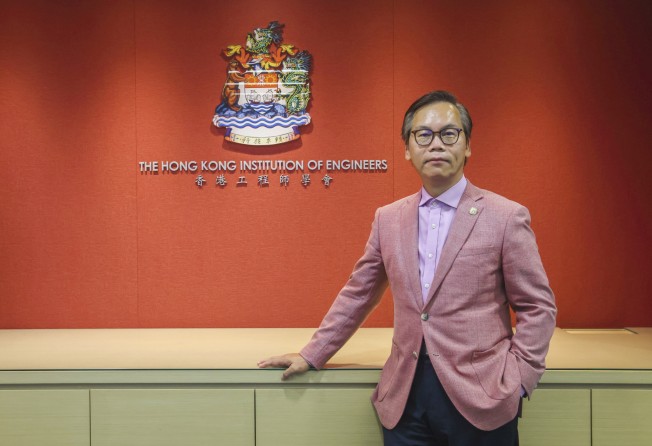
Mirror concert accident: it was avoidable, should not have happened, says incoming chief of Hong Kong engineering body
- Professional safety code demands care, checks when installing heavy overhead equipment, says civil engineer Aaron Bok
- Institution of Engineers’ incoming chief pledges disciplinary action if any members are found responsible
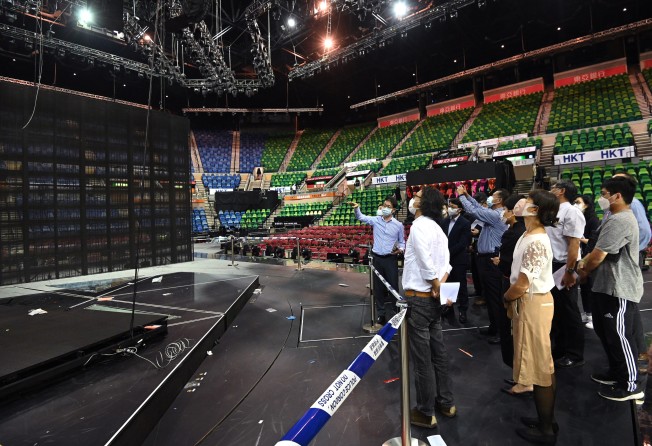
The accident at a concert by Hong Kong boy band Mirror last month, which left a dancer critically injured, would not have happened if sufficient expert care had been taken in installing giant overhead video screens, the incoming chief of the city’s top engineering body has told the Post.
“This accident should not have happened. This was entirely avoidable,” said veteran civil engineer Aaron Bok Kwok-ming. “I would never have allowed a group of artists to dance under a suspended and moving structure. This is highly dangerous.”

Two dancers were hurt when a four-by-four-metre overhead screen weighing more than 540kg (1,190lbs) crashed onto the stage during the concert at the Hong Kong Coliseum on July 28. Critically injured Mo Li Kai-yin, 27, remains in intensive care, in danger of being paralysed from the neck down.
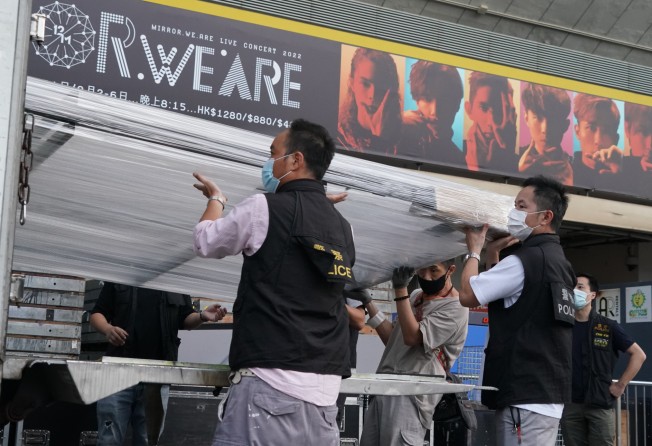
The concert was the fourth of what was to be a series of 12 shows by the hugely popular boy band. The rest of the concerts were cancelled amid an ongoing investigation into the accident.
Bok, 61, who recently retired as head of the Civil Engineering Office under the Civil Engineering and Development Department, will take the helm as the new president of the 33,000-strong Hong Kong Institution of Engineers later this month.
Commenting on the concert accident, he focused on measures which normally would have been taken under the profession’s safety code.
There should not have been a group of artists dancing under the suspended and moving video screen during the concert
He said that at a construction site, for example, lifting equipment was only allowed to operate in a restricted “no-go zone” with nobody working under or near the equipment.
“By the same token, there should not have been a group of artists dancing under the suspended and moving video screen during the concert. When the screen was moving, it would have created much greater loading than in a static state,” he said.
A hanging structure weighing more than 500kg also needed to be secured more carefully to minimise the risk of falling.
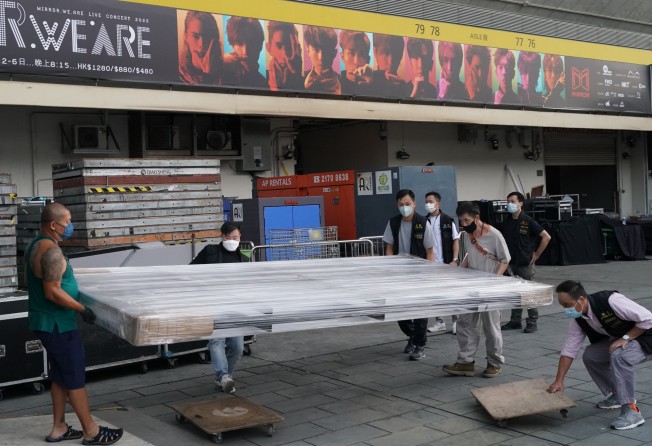
If a suspended screen like the one at the concert was secured with sufficient metal wires, it would not fall even if one wire snapped, he said.
Video clips of the mishap circulating on social media showed more than a dozen performers on stage when one of a number of large overhead screens came loose and crashed down.
According to preliminary findings by a government inquiry task force, one of two metal wires used to suspend the screen was subjected to metal fatigue, which caused the wire to snap.
Bok said a registered engineer would usually be responsible for designing the structure for suspended equipment and there would be a technician to conduct daily checks on the metal wires used.
Such checks could usually reveal any sign of metal fatigue in the wires used to hang the equipment, he said.
“If the task force findings show that some engineers breached their professionalism and should be held accountable, the HKIE will follow up with disciplinary action,” Bok pledged.
But he also said he believed the incident was an individual case, not a reflection of standards in the profession.
According to the Hong Kong Coliseum’s terms of use, no erection, installation, rigging or suspension of any structure or equipment can take place without the supervision of qualified professionals, and the approval of the Leisure and Cultural Services Department must also be obtained.
Bok’s 37-year career included stints at the Highways Department, Transport Department and Development Bureau, where he undertook major projects such as the Hong Kong-Zhuhai-Macau Bridge and the Central-Wan Chai Bypass.
He said the city’s engineering sector had shown signs of improvement, with the number of construction accidents declining over the past decade.
The number fell from 13,658 in 2011 to 10,602 in 2018, before the Covid-19 pandemic. There were 8,865 accidents last year. But the 25 fatalities last year were higher than the annual average of 16 deaths over the five-year period from 2015 to 2020.
Bok said Hong Kong faced a crisis in engineering manpower, with not enough professionals to cope with the government’s ambitious infrastructure and housing plans for the next two decades.
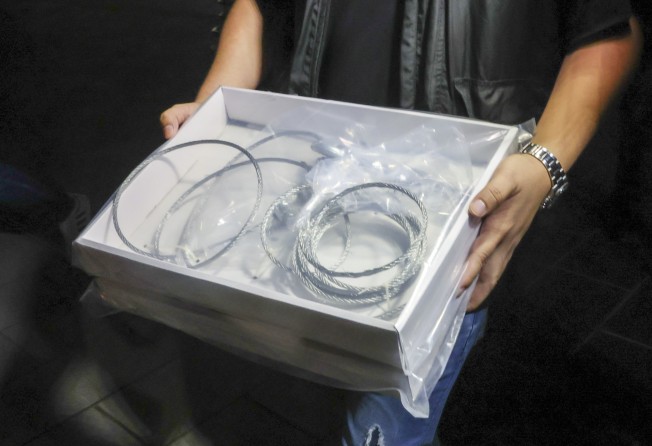
They include the Northern Metropolis project in the New Territories, which involves transforming 30,000 hectares (74,13 acres) near the mainland Chinese border into an economic and residential hub that can house up to 2.5 million people in the next two decades.
There are now about 14,000 engineering professionals working in the construction industry.
To attract overseas talent, draw more local students to engineering and raise productivity in the construction sector, Bok urged the authorities to curtail what he described as a vicious circle of a cutthroat competition by rejecting unreasonably low bids for tendered projects.
“This vicious circle has deterred top-grade engineers from undertaking projects in the city. The rejection of unreasonably low bids could help lure them back to Hong Kong and improve creativity and productivity in delivering projects,” he said.